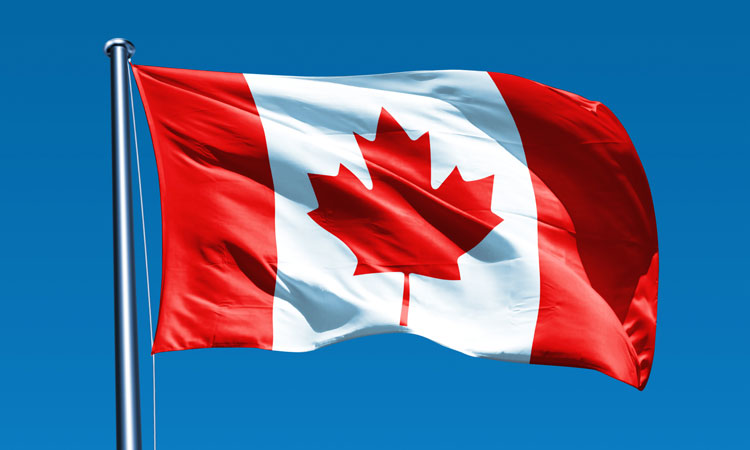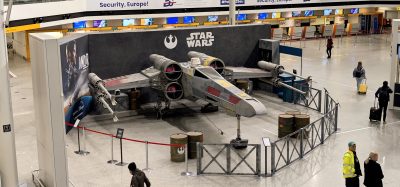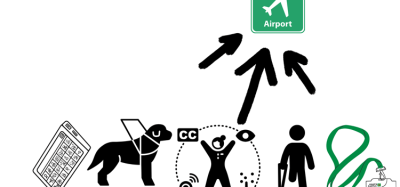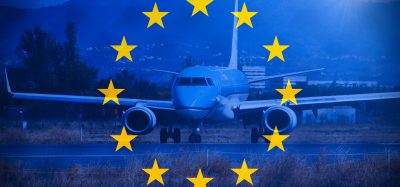Canadian airports call for urgent plan to reverse domestic and international travel restrictions
- Like
- Digg
- Del
- Tumblr
- VKontakte
- Buffer
- Love This
- Odnoklassniki
- Meneame
- Blogger
- Amazon
- Yahoo Mail
- Gmail
- AOL
- Newsvine
- HackerNews
- Evernote
- MySpace
- Mail.ru
- Viadeo
- Line
- Comments
- Yummly
- SMS
- Viber
- Telegram
- Subscribe
- Skype
- Facebook Messenger
- Kakao
- LiveJournal
- Yammer
- Edgar
- Fintel
- Mix
- Instapaper
- Copy Link
Posted: 9 March 2021 | International Airport Review | 9 comments
The Canadian Airports Council has called on the Government of Canada to increase its support for the country’s aviation sector in order to avoid the impact of the COVID-19 pandemic being permanent.


Canada’s airport are calling on federal and provincial governments to work with airports and other industry stakeholders as a matter of urgency if the country is to emerge from the COVID-19 pandemic with a functioning air sector that supports Canadian travel, tourism and trade.
The air sector has stressed that it needs a plan that will reverse domestic and international travel restrictions when the time is right in order to ensure that Canada has a strong, competitive air sector on the other side of the health crisis.
With the increase in air travel restrictions, as well as the new quarantine and testing requirements that were imposed during the last quarter of 2020 and early 2021, the Canadian Airport Council’s (CAC) December 2020 outlook projected that revenue losses for Canada’s airports have deepened to $5.5 billion for 2020 and 2021 – a $1 billion deterioration since the last analysis was released in August 2020.
Given that no more than 20 per cent of the measures outlined in the federal Fall Economic Statement will come in the form of direct grants to address operational losses, Canada’s airports expect to take on about $2.8 billion in additional debt in 2020 and 2021.
Daniel-Robert Gooch, President of the Canadian Airports Council, has expressed his concern over the possibility that the effects will be permanent: “While the federal government has been supportive, it is missing the sense of urgency to act quickly and decisively. The reality is that these losses are unsustainable. Without government action, air travel will not only become a lot more expensive, but Canadians everywhere will have fewer choices of routes and destinations, including at the four major hub airports.”
Prior to the onset of COVID-19, the majority of Canada’s airports were almost entirely funded through passenger and aeronautical fees, which have dropped catastrophically as a result of passenger traffic being at zero to 15 per cent of pre-COVID-19 levels at most airports. Unfortunately, the government’s mitigations – such as ground lease rent relief and the Canada Emergency Wage Subsidy – provided only minimal aid.
“These measures provided some assistance, but not enough to help to support airports dealing with higher costs and cratering revenues,” Gooch added. “In fact, our analysis shows that even their modest impact was far less than the government projected.”
When the rent waiver was announced in March 2020, the government asserted that it would provide the equivalent of $330 million in relief to the airport sector. CAC’s data, aggregated directly from airports, show that the waiver saved only $137 million, 90 per cent of which benefited just four airports. Moreover, the majority of Canadian airports pay no rent, so most airports saw no benefit from the waiver at all.
Similarly, the Canada Emergency Wage Subsidy (CEWS) provided $139 million in support to airports in 2020 – a fraction of the $1.7 billion that the federal government says has been provided to “air sector workers” – with 84 per cent going to the four busiest airports. Moreover, about 200 municipal airports in Canada are not even eligible to participate in the programme.
CAC has stressed that, if the government does not increase its support, airports will have no choice but to make some stark choices that will have a direct impact on their passengers and communities. They can raise their fees significantly, continue to take on unprecedented amounts of new debt or reduce operations even more dramatically.
To complicate matters further, air travel is very price-sensitive, and airports must compete with each other for service. If their rates increase too much, air carriers may elect not to return or may do so at fares that are no longer competitive, driving Canadians to fly on foreign air carriers and out of American airports as part of a vicious spiral that further degrades air connectivity for Canadian communities.
CAC has identified a number of government-led actions to avoid the worst of these outcomes, including:
- Working inclusively with Canada’s airports and industry partners on a plan to safely restart air travel when it is safe to do
- Implementing a moratorium on ground lease rents and provide options for interest-free loans (or equivalent operational support) until the business recovers, which could take five years or longer
- Expanding national transportation infrastructure funding to meet safety and security requirements and adapt to COVID-19 and climate change
- Making permanent the elevated Airports Capital Assistance Program funding and expanded eligibility criteria to ensure a sustainable recovery at Canada’s regional airports.
“Since the outset of the pandemic, airports have worked with transport, border and public health officials, among others, to ensure that air travel is as healthy and safe as possible and to continue to provide essential and emergency services for Canadians,” said Gooch. “We look forward to working with our government colleagues to rebuild confidence in air travel and save the industry from long term and irreparable damage.”
Related topics
Aeronautical revenue, Airport crisis management, COVID-19, Passenger volumes, Regulation and Legislation, Sustainable development, Tourism



















As a retired individual with the desire for increased travel I find the restriction imposed by the Canadian government are nothing more than a look good approach and have next to zero effect in controlling the spread of Covid. With millions of essential workers crossing the border for the last year and domestic travel between provinces the efforts should be on better testing protocols than arbitrary quarantee. You get tested before getting on a plane and test when you arrive, why do I need to expose myself to further points of contact by staying at a quarantine hotel for 3 days? I can simply go home without interacting with anyone. With additional follow-up test it seems we are bankrupting the travel sector needlessly for the sake of appearances.
Too bad about air travel but if we tear the lid off of the restrictions well never get over covid.
As a taxpaying citizen who is tired of over paying for luggage and shrinking seating, I haven’t any interest in supporting any airline. Capitalism is the businessman’s best friend until they’re going bankrupt. When people are willing and able to travel again, someone will want their dollars and restore the service.
Here we go initiative taking place to push the narrative for the digital ID vaccination passport. They’ve done it in Israel they’ll do it elsewhere. It’s all about money nothing else.
They should allow travels but with caution. So to avoid Canadian airlines falling or close to bankruptcy while maintaining safety measures!
I agree with Ted. These restrictions have been implemented without any logical thought. From having flights have more then one stop over then normal , exposing us to more people, to having a pointless 3 day stay in a hotel EXPOSING US AGAIN. When the safest option is to let people go home. I haven’t even mentioned the fact that the government should have a list of places where one can go in each country and these places should KNOW the type of ACCEPTABLE TEST needed to be admissible into Canada. This also is the time where THE EMBASSIES NEED to have working numbers and working after hours numbers. There should be No such thing as business hours when it comes to an EMBASSY. Remember what worked 90 years ago doesn’t work today.
The 3 day hotel stay upon arrival is an infringement on people’s rights and a total money grab.
I was going to fly home to Canada in March but no way am I paying $2000. The Acclaim hotel in Calgary was a cheaper stay in January at $660. For 3 days. I called and tried to book it for March and they said the government raised the price, now it is $980. For 3 days.
That is a good example our government cares more about money than safety. Not paying.
Ted I soooooo agree with you.
when will travelling start ?